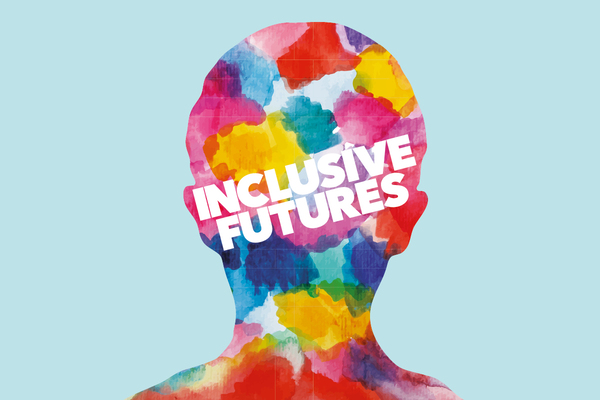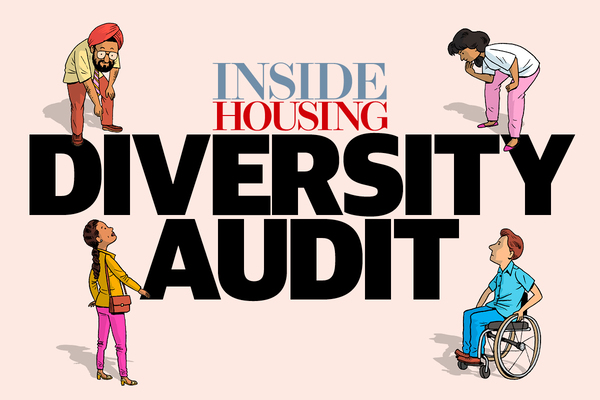You are viewing 1 of your 1 free articles

Housing associations need to benchmark against the very best businesses
If we want to be employers of choice, we must benchmark ourselves against the very best businesses, not just our own sector, argues Bjorn Howard
The housing sector is an exciting industry to be part of. The Social Housing Green Paper and a very pro-housing Autumn Budget show that housing is recognised as one of the central issues of our times.
But if we’re honest, as employers we can be a bit insular at times. We hire our best talent from each other rather than inspiring people to switch to our sector.
Some of the best talent out there is ‘sector agnostic’ – people move fluidly between industries. One of Britain’s most admired business leaders, Carolyn McCall, has held the top job at Guardian Media Group, easyJet and now ITV.
For employees, this keeps things interesting and the dream of a portfolio career alive. For employers, there’s more opportunity to bring in fresh ideas and access transferable skills. But it also means competing with businesses outside the sector too, not just our peers, in the so-called ‘war for talent’.
“Some of the best talent out there is ‘sector agnostic’ – people move fluidly between industries.”
Selling your industry, not just your job roles, is central to winning this war. In my view, housing is as exciting a sector to work in as tech or media. We need to articulate what makes it special. Fundamentally, we are about improving people’s lives. We offer people the opportunity of owning a home, the chance to live independently and the promise of security.
This matters – a recent PwC report shows that 88% of millennials would prefer an employer whose corporate social responsibility values match their own.
Selling careers is a mixture of explaining the benefits of individual industries and roles, so it’s important to highlight what makes your organisation a great place to work.
We’ve invested in three key areas to make sure we’re attracting the right people, from apprentices to senior management.
First, we’re ensuring our recruitment approach acknowledges all forms of diversity, to appeal to as broad a pool of people as possible.
Recently we welcomed new non-executive directors and committee members including technology entrepreneurs, business consultants, television chiefs and retail executives. This means our decision-making is influenced by a variety of experiences and people with different backgrounds and skills.
"Striving for diversity and inclusion is morally the right thing to do, but it’s also an operational necessity"
The housing sector is under increasing pressure to deliver more homes at the same time as dealing with a UK-wide skills shortage. Striving for diversity and inclusion is morally the right thing to do, but it’s also an operational necessity.
We are tackling that head on. We recently signed up to the Disability Confident scheme, an initiative that supports employers to remove barriers to disabled people working for them. We’ve created a project group so we can draw from the experiences of current employees to make sure we’re finding ways to include and appeal to people with disabilities.
Our second focus is retention. With this in mind, we’re creating a wide-reaching development programme for future leaders within the business.
We’re also constructing a framework to ensure people are given the tools for personal development through activities such as job shadowing that help broaden their skills. We promote vacancies internally so employees can consider a change of direction without needing to look externally.
This kind of flexibility is real ambition for us and we’re working to embed it into every aspect of our culture. This isn’t just about working flexible hours but working in a more agile and joined-up way that means people can work from anywhere and still collaborate seamlessly.
Making dramatic cultural shifts is sometimes necessary to continuously improve the service we offer our customers. They expect a 24-hour-a-day service which naturally lends itself to a more digital way of working for our employees. It’s up to us to give our teams the tools they need to meet these expectations through investment in the right technology.
Getting buy-in for these changes isn’t always easy. That is why employee experience is the third element of our approach to change. Today’s employees expect to have their voices heard and have an influence over the business’ strategic direction. With this in mind, we’re creating a wide-reaching development programme for future leaders within the business.
“Getting buy-in for these changes isn’t always easy. That is why employee experience is the third element of our approach to change.”
Our internal event, ‘This is Aster’, involved taking our employees out of ‘work’ to ensure each one understands who we are, what we do and how their role contributes to the delivery of the corporate strategy. We’re now just beginning to roll out a cultural framework which covers a broad range of themes from freedom and trust to supportive leadership.
Instrumental to this roll-out is our ‘Transformation Network’ of more than 100 team members who use their various experiences working across the organisation to advise the leadership team how Aster can change.
The whole process has been enlightening and we’re already seeing the benefits. I know from speaking to peers that many others are following a similar path. With any luck, no one will be calling our sector insular in the future.
Bjorn Howard, chief executive, Aster Group
Homes 2018
Homes 2018 is the premier event experience for those working at a high level in residential development, strategic asset management and procurement.
As well as Kit Malthouse, housing minister, as the closing keynote speech, there will be conference sessions on the world’s tallest modular towers, micro-living and the UK’s largest self and custom build community.
Plus, find the latest product innovation and meet over 120 exhibitors, while networking with 4,000+ industry peers.
Homes 2018 will take place at Olympia, west London on November 28 and 29.
Inclusive Futures
Inside Housing’s Inclusive Futures campaign aims to promote and celebrate diversity and inclusion.
We are pledging to publish diversity audits of our own coverage.
We are also committed to proactively promoting positive role models.
We will do this through the pages of Inside Housing. But we will also seek to support other publications and events organisations to be more inclusive.
Our Inclusive Futures Bureau will provide a database of speakers and commentators from all backgrounds, for use by all media organisations.
We are also challenging readers to take five clear steps to promote diversity, informed by the Chartered Institute of Housing’s diversity commission and the Leadership 2025 project.
THE INCLUSIVE FUTURES CHALLENGE
Inside Housing calls on organisations to sign up to an inclusive future by taking five steps:
Prioritise diversity and inclusion at the top: commitment and persistence from chief executives, directors and chairs in setting goals and monitoring progress.
Collect data on the diversity of your board, leadership and total workforce and publish annually with your annual report. Consider gender, ethnicity, disability, sexuality, age, and representation of tenants on the board.
Set aspirational targets for recruitment to the executive team, board and committees from under-represented groups.
Challenge recruiting staff and agencies to ensure that all shortlists include candidates from under-represented groups.
Make diversity and inclusion a core theme in your talent management strategy to ensure you support people from under-represented groups to progress their careers.
THE CASE FOR CHANGE
34%
of housing association chief executives are female
1%
of housing association executives have a disability
1.6%
of housing association board members are LGBT
Women make up 46% of the UK workforce, but Inside Housing research found that they are under-represented on housing association boards (36%), executive teams (39%) and among chief executives (34%).
Almost a fifth of working-age adults have a disability (18%), yet associations reported only 1% of executives and 4.5% of board members with a disability. Many were unable to provide details.
Nationwide, 14% of the working-age population come from a BME background, climbing to 40% in London and Birmingham. Yet our research found that 6.8% of board members identified as BME, compared with 4.5% of executives.
Statistics on representation of LGBT people in the workforce are in short supply, but official statistics suggest that 2% of the total UK population identify as lesbian, gay or bisexual, rising to 4.1% for 16 to 24-year-olds. Our survey found that 1.6% of board members and 10 executives were LGBT – but most organisations were unable to provide figures.
The Inside Housing Diversity Audit: how diverse has our coverage been?
The media plays a key role in championing diverse role models, so we designed a project to measure Inside Housing’s track record.











